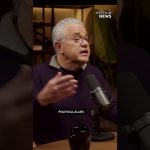In an interview on NY1’s “Mornings on 1,” Mayor Eric Adams discussed the citywide expansion of New York’s composting program alongside Sanitation Commissioner Jessica Tisch. The program aims to reduce landfill use and curb the rat population by encouraging composting of food and yard waste. Enforcement of mandatory participation will begin in April 2025. Mayor Adams also addressed recent turmoil in his administration, including his criminal indictment and the resignations of several top officials, asserting that these developments would not deter his focus on advancing city initiatives and filling leadership positions.
Transcript: Mayor Adams Appears Live on NY1’s “Mornings on 1”
Pat Kiernan: The mayor is joining us from City Hall along with the Sanitation commissioner, Jessica Tisch. Good morning to both of you.
Mayor Eric Adams: Good morning. Great to be on this morning.
Kiernan: Mayor Adams, I’ve got a long list of questions about a whole lot of topics, but we’ll start with the compost program. It’s been operating in two boroughs. This is now the expansion this week citywide. Are you happy with the extent to which people have been participating?
Mayor Adams: Think about it, three billion [pounds] of composting. When you think about what Commissioner Tisch has been able to accomplish, so many people have tried, administrations. We’ve been able to get it done in five boroughs. I don’t want to take the thunder away from her. She’ll share what it looks like.
Kiernan: Well, Commissioner Tisch, let’s get to the details, because this is, again, something new for people in the way they’re handling their trash. You want most organic material to go into those special bins that you delivered.
Commissioner Jessica Tisch, Department of Sanitation: That’s right. We like to say if you cook it or you grow it, you can throw it. So on your recycling day, all New Yorkers should set out in their composting bin basically anything from their kitchen and anything from their yard.
Kiernan: So participation is mandatory?
Commissioner Tisch: You know, we’re not going to start enforcement until spring of next year, until April. And that’s because we want to give all New Yorkers an opportunity to get the muscle memory, to get used to separating out their food waste and their yard waste.
But what I would say about this program now is under this mayor, it represents the most sweeping change to sanitation service in the city of New York since we started recycling over 20 years ago.
Kiernan: And that’s a different truck comes around for the compost materials?
Commissioner Tisch: So in certain districts, it’ll be a separate truck, a rear loader truck. But in other districts, the lower density districts, we’re able to use dual bin trucks, and we make the program a little bit less expensive that way. And we can put refuse in one side and organics in the other side.
Kiernan: Mayor Adams, you have had this focus on the rat population in New York City. These bins strike me as there’d be a lot of good stuff for rats in there. Are you worried that that is going to be a problem?
Mayor Adams: Not at all. As the commissioner and our team put together, these will have tops to the bins, small 55-gallon bins, really convenient. And they’re rat-proof, just as what we’re rolling out with bins for the entire population throughout the city to remove their garbage. So it’s about making sure we get away from what she likes to say, the all-you-can-eat rat buffet that has really been a major problem in the city for years.
Kiernan: Commissioner?
Commissioner Tisch: I would just add, I would say to your listeners that actually curbside composting is the best rat mitigation strategy there is. We know that one-third of the material in those black bags is food waste. And human food, unfortunately, is also rat food. So if we get that food out of the black bags and we put it into the composting bins, we bring the fight to the rats, and it’s a win for the environment because instead of it sitting in landfill for decades producing methane, instead we’ll make soil or renewable energy.
Kiernan: Commissioner, this is a big program, obviously. It will take some time to fully implement. Have you given a commitment to Mayor Adams that you’ll stay in office for the remainder of his term?
Commissioner Tisch: Oh, absolutely. I have worked in city government for 17 years, and I am so proud of the work that I am doing under Mayor Adams. We were just talking about this historic change that we’re making today, offering an unprecedented level of curbside composting service to all New Yorkers. But next month, we’re also doing something that no mayor has been able to do in 50 years, and that is start to get the residential trash into containers. The one thing that those two initiatives share in common is that they would not get done without Mayor Adams.
Kiernan: All right, Commissioner Tisch. Commissioner Tisch joining us this morning, thank you for your time. Mayor Adams is going to stay with us, and we’ll get into some bigger topics here.
Again, the city trying to get everybody on board with the composting program voluntarily. The fines will not start immediately, but in April, once they start with enforcement, there will be a different schedule of fines for small buildings and for single-family homes, $25 for a first defense, rising eventually to $100. For bigger buildings, the fines will be much more substantial, $100 initially for the fine, and up to $300 for subsequent offenses.
So let’s get back to the turmoil at City Hall now that the mayor faces this criminal indictment. The Stonewall Democrats issued a statement on the weekend expressing concern about the resignations all coming within just a few weeks of each other, the police commissioner, the school chancellor, and the health commissioner. They wrote, with top city administrators in each of these policy areas resigning, a distracted mayor at best and a mayor whose favor can be bought at worst, we believe it is in the best interests of New Yorkers for Mayor Adams to step aside.
Mayor Adams, we have a new report out from the New York Post this morning that says your longtime deputy mayor for Public Safety, Phil Banks, is now added to that list of people who are resigning.
Mayor Adams: Well, you know, first of all, when you look at organizations who really were vehemently against me becoming the mayor and you hear some of the comments they’re making, you sort of expect that. But, you know, as I moved around the city throughout the weekend, several different events in the Bronx and Manhattan and Queens as well, New York is just saying, keep doing the job that you’re doing, move forward. And I am confident when the true story gets out, not a one-sided version, New York is going to see that we can stay focused and get the job done as we’re doing today and as we will continue to do so.
Kiernan: Mayor Adams, are you able to confirm that report from the Post that Phil Banks delivered a letter of resignation last night?
Mayor Adams: We spoke yesterday and we spoke again this morning and he stated he wants to transition to some other things with his life and he doesn’t want this to be a constant burden on the work that we’re doing in the city. And I accepted his resignation. A longtime great public servant from the chief of Department to the deputy mayor of Public Safety and all the initiatives, even the last initiative he’s doing with removing the ghost cars of our streets. I wish my good friend well.
Kiernan: Is that his initiative or yours?
Mayor Adams: No, it was his initiative. He created the ghost cars initiative with Commissioner Tisch to be exact. Over a thousand ghost cars removed off the streets and just a number of initiatives that he has put in place, even overseeing the cannabis removing, over a thousand cannabis shops that have been closed down. These are all part of his legacy on what he’s doing for the quality of life for New Yorkers.
Kiernan: What I meant was, was it his idea to resign or was he. Did you suggest it to him?
Mayor Adams: No, it was his. He reached out to me and stated, Eric, I’m looking to move on and this is a good time to do so. And actually a couple of months ago, he sat down with me around about six months ago and stated that, look, I’m looking to transition, Eric. And I said, listen, we’ve got a couple of things in the pipeline. Can you please hold on and get them done? And he was willing to do that. And I appreciate him for that.
Kiernan: Mayor Adams how do you get this back on track, though? It’s been one resignation after another. And in these various cases, there have been explanations for each of them individually. But there is a perception from New Yorkers that you’ve got a lot to handle here, not just the indictment, but this exodus at City Hall.
Mayor Adams: Well, let’s keep in mind a couple of things. Number one, every New Yorker has a lot to handle. That is what life is about. That’s what happens to every New Yorkers. When I speak to a mother whose troubled over how to make sure the city is affordable. When I speak to those who lose a loved one to violence or dealing with pressures, that is what it is to be a New Yorker.
Kiernan: But, Mayor Adams, we all deal with pressure. We all deal with pressure. This is an indictment combined with a whole list of resignations and an ongoing investigation.
Mayor Adams: As I was saying, we all have a lot to handle. And we have to do that every day. And I want to be a living example of that. And look at my bench. We’re not leaving vacancies open. People want to be in government. And we’re going to continue to fill those positions. We have a list of people from our transition team that are ready to come into every position that leads. And no one stays in government forever. People transition in and out. And we’re going to continue to move the city forward.
Kiernan: You’ve had conversations with Governor Hochul. She’s put some pressure on you as you get through this investigation and ultimately possibly to trial on this indictment. Have you spoken to the governor about business other than your own administration? Are you actually continuing conversations with her about city government?
Mayor Adams: You use a powerful term. She put pressure. No, the governor has always been a partner. That’s the term that we’ve always used. And she has made it clear as we’re dealing with everything from City of Yes agenda to coming up with what the agenda is going to be in Albany.
So, our conversations are not based on just what’s happening with the transition of personnel. But it’s about how we move the city and state forward together. And we’ve been a partner ever since. Bringing down crime in our subway system. What she has done with our housing agenda. She’s been a real partner and she will continue to do that. And I thank her for that.
Kiernan: All right, Mayor Adams, we do appreciate you taking some of these questions head on this morning. Thank you for spending some time with us this morning.
Mayor Adams: Take care.
October 7, 2024 New York
Critical Questions :
- How will the city ensure that expanding the composting program does not lead to increased costs or logistical challenges for residents, particularly those in lower-density districts?
- Is the enforcement of composting regulations through fines fair to New Yorkers who are already facing high living costs, and could this be perceived as an unnecessary burden?
- With a series of high-profile resignations and a criminal indictment, how can Mayor Adams effectively govern and maintain the public’s confidence in his ability to lead the city?
- Does Mayor Adams have a sustainable long-term plan for addressing New York City’s sanitation issues, or is the composting program merely a temporary solution that could overlook deeper, systemic challenges?
Sources: New York City Hall NYC.gov, Midtown Tribune news ,
Big New York news BigNY.com














